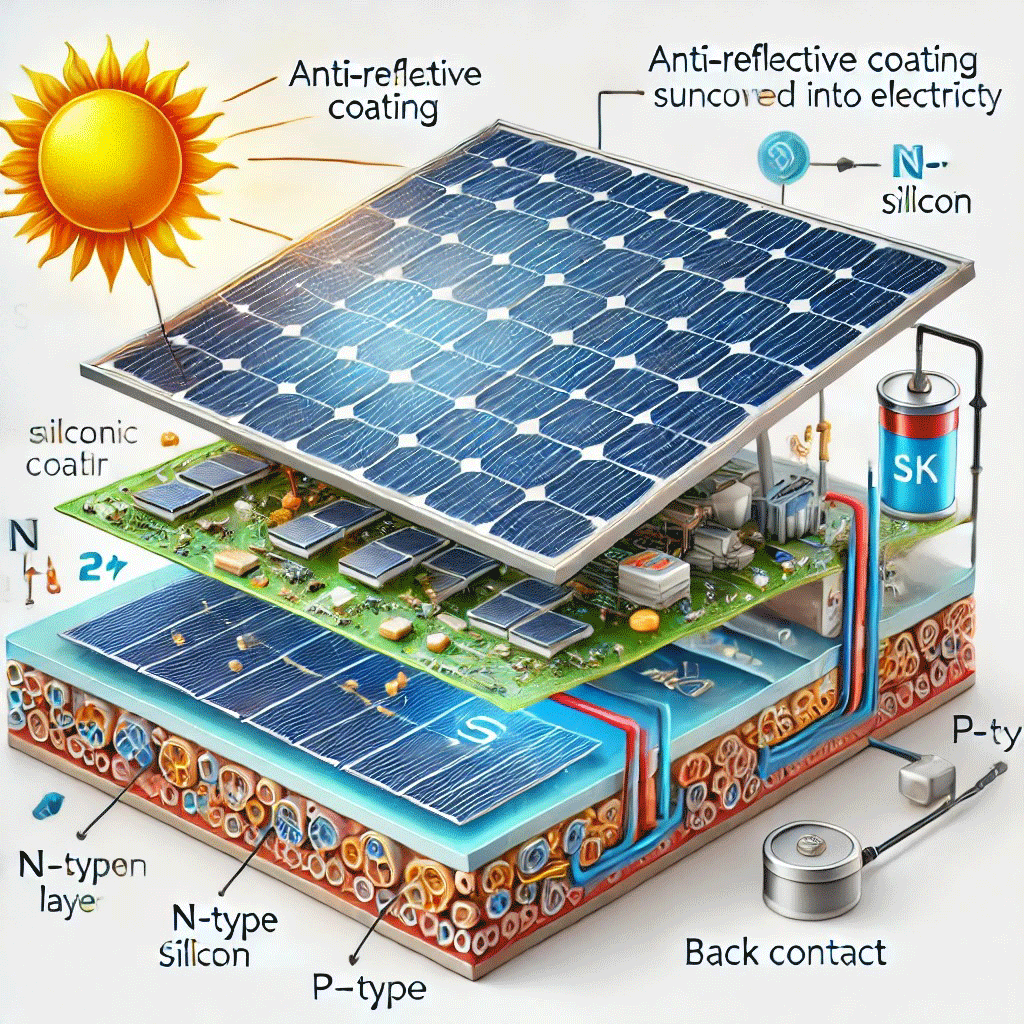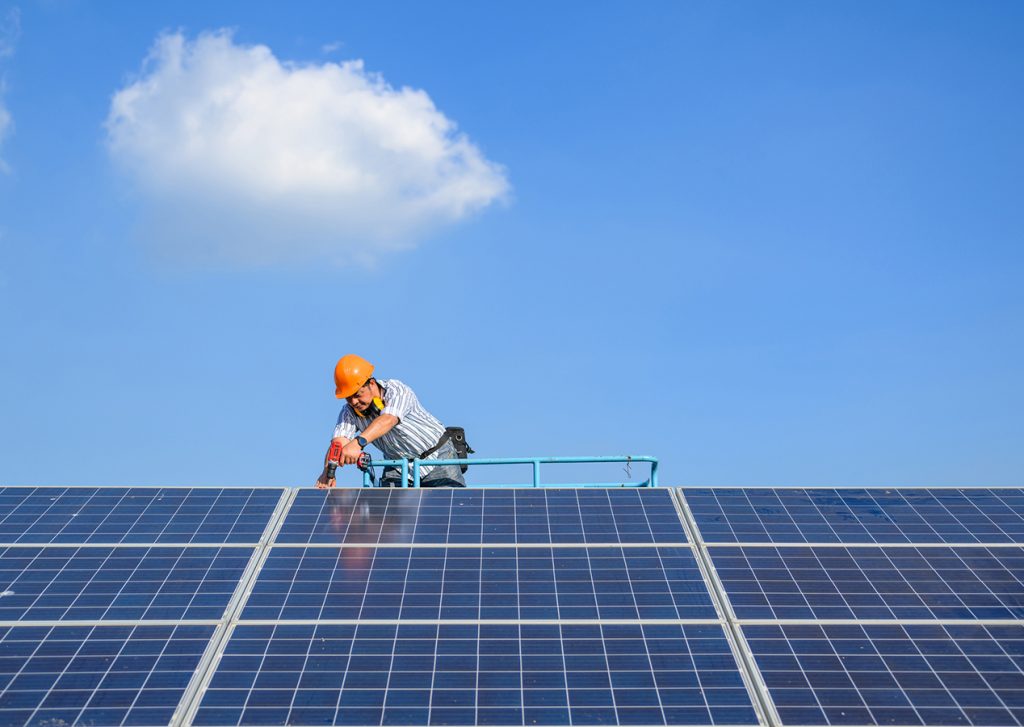Reduce Energy Bills with Simply Solar Illinois – Explore Your Solutions
Reduce Energy Bills with Simply Solar Illinois – Explore Your Solutions
Blog Article
Just How Solar Power Can Help You Save Money and Reduce Your Carbon Impact
The integration of solar power right into your power profile provides an engaging opportunity for both financial cost savings and ecological stewardship. As different government motivations come to be readily available, the inquiry occurs: just how can one properly navigate the first investments and continuous benefits of solar modern technology to maximize both economic and environmental gains?
Understanding Solar Power Financial Savings
While the shift to solar energy typically includes an initial financial investment, recognizing solar power savings is essential for property owners and services alike. Solar energy systems can significantly reduce electricity expenses by harnessing the sun's energy, translating right into significant lasting economic benefits.
Moreover, solar energy systems might receive different financial incentives, including tax debts and discounts, additionally improving their cost-effectiveness. The availability of net metering allows individuals to sell excess power back to the grid, developing an additional earnings stream. These elements add to the total cost savings connected with solar power.

In enhancement to route monetary savings, solar energy uses the included advantage of increasing residential property value. Residences outfitted with solar panels are typically a lot more appealing to purchasers, as they guarantee lower power costs - Simply Solar Illinois. Recognizing these elements is important for anybody considering solar energy, as it highlights not just the potential financial gains, yet additionally the more comprehensive environmental and financial benefits of embracing sustainable energy solutions
Initial Costs vs. Long-Term Benefits
When reviewing solar energy, it is very important to evaluate the initial costs versus the lasting benefits. The upfront financial investment for photovoltaic panels, setup, and associated devices can be significant, commonly varying from $15,000 to $30,000, depending on the system dimension and home power requirements. This preliminary expenditure might prevent some home owners; nonetheless, it is critical to think about the potential cost savings gradually.
Once mounted, solar power systems can significantly lower and even remove regular monthly electrical power costs, causing substantial long-lasting economic advantages. Studies suggest that homeowners can conserve anywhere from $10,000 to $30,000 over the lifespan of their solar system, typically 25 years. In addition, numerous states supply incentives, tax obligation credits, and refunds that can counter preliminary prices, making solar much more obtainable.

Lowering Your Carbon Impact
Reducing your carbon impact is a crucial factor to consider in today's ecologically conscious culture, and embracing solar energy is one of one of the most effective methods to achieve this objective. Solar energy is a clean, renewable energy that substantially diminishes reliance on nonrenewable fuel sources, which are major contributors to greenhouse gas exhausts.

In addition, the extensive fostering of solar innovation urges the advancement of find more info environment-friendly tasks and sustains developments in power storage and performance. The more individuals and companies buy solar energy, the greater the cumulative reduction in carbon discharges, promoting a cleaner ambience for future generations.
Government Motivations and Rebates
Embracing solar power not only profits the atmosphere yet can also cause substantial financial cost savings, especially with the accessibility of federal government incentives and refunds. Numerous federal, state, and regional programs are created to encourage home owners and businesses to purchase solar Recommended Reading power systems, making the change much more inexpensive.
Among one of the most prominent rewards is the Federal Investment Tax Obligation Credit Report (ITC), which allows planetary system proprietors to subtract a substantial percentage of the setup expenses from their government tax obligations. This incentive has been essential in minimizing the ahead of time expenditures related to solar power systems. In addition, several states offer their very own tax obligation credits, gives, and rebates that can further enhance cost savings.
Additionally, some local governments supply residential property tax exceptions for solar installations, making certain that property owners do not encounter raised real estate tax as a result of their renewable resource financial investments. Utility business may additionally supply incentives, including net metering and feed-in tolls, which enable solar energy users to market excess power back to the grid.
Selecting the Right Solar System
Selecting the ideal planetary system is vital for maximizing power effectiveness and monetary benefits. The choice hinges on several variables, consisting of power demands, budget plan, and available my blog room. House owners must begin by examining their power usage to figure out the system size needed for ideal efficiency.
Following, consider the different kinds of solar innovations readily available. Simply Solar Illinois. Solar (PV) panels are the most common, transforming sunlight straight right into electrical energy, while solar thermal systems concentrate on home heating water. Each type has distinct advantages depending upon individual needs
Budget plan considerations are additionally critical. First installation expenses can differ considerably, so it's crucial to compare quotes from several suppliers and explore financing alternatives. Government motivations and rebates can further lower the financial problem, making solar systems much more accessible.
Conclusion
In summary, solar power provides a viable service for accomplishing considerable price savings while all at once minimizing carbon emissions. The preliminary financial investment, though considerable, returns considerable long-term financial benefits, with prospective cost savings varying from $10,000 to $30,000 over 25 years. The environmental advantages of solar energy contribute to sustainable practices critical for combating climate change. Government incentives boost the usefulness of solar innovation fostering, urging a change in the direction of a cleaner, much more economically efficient energy source.
Report this page